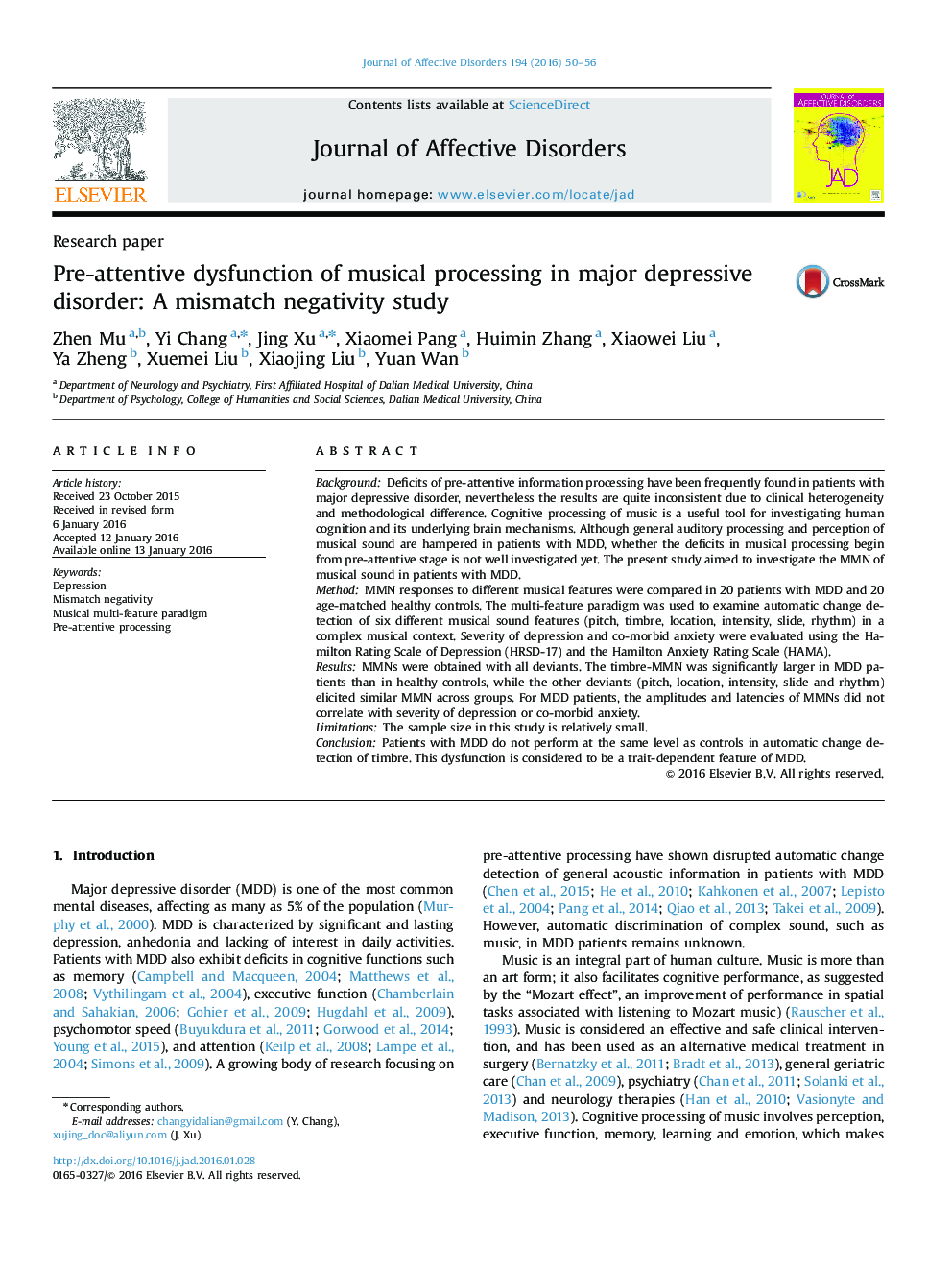| Article ID | Journal | Published Year | Pages | File Type |
|---|---|---|---|---|
| 4185854 | Journal of Affective Disorders | 2016 | 7 Pages |
•We examine pre-attentive processing of six musical features in depressive patients.•Significantly larger timbre mismatch negativity (MMN) was found in depressive patients.•The amplitudes and latencies of timbre–MMN did not correlate with severity of symptoms.
BackgroundDeficits of pre-attentive information processing have been frequently found in patients with major depressive disorder, nevertheless the results are quite inconsistent due to clinical heterogeneity and methodological difference. Cognitive processing of music is a useful tool for investigating human cognition and its underlying brain mechanisms. Although general auditory processing and perception of musical sound are hampered in patients with MDD, whether the deficits in musical processing begin from pre-attentive stage is not well investigated yet. The present study aimed to investigate the MMN of musical sound in patients with MDD.MethodMMN responses to different musical features were compared in 20 patients with MDD and 20 age-matched healthy controls. The multi-feature paradigm was used to examine automatic change detection of six different musical sound features (pitch, timbre, location, intensity, slide, rhythm) in a complex musical context. Severity of depression and co-morbid anxiety were evaluated using the Hamilton Rating Scale of Depression (HRSD-17) and the Hamilton Anxiety Rating Scale (HAMA).ResultsMMNs were obtained with all deviants. The timbre-MMN was significantly larger in MDD patients than in healthy controls, while the other deviants (pitch, location, intensity, slide and rhythm) elicited similar MMN across groups. For MDD patients, the amplitudes and latencies of MMNs did not correlate with severity of depression or co-morbid anxiety.LimitationsThe sample size in this study is relatively small.ConclusionPatients with MDD do not perform at the same level as controls in automatic change detection of timbre. This dysfunction is considered to be a trait-dependent feature of MDD.
